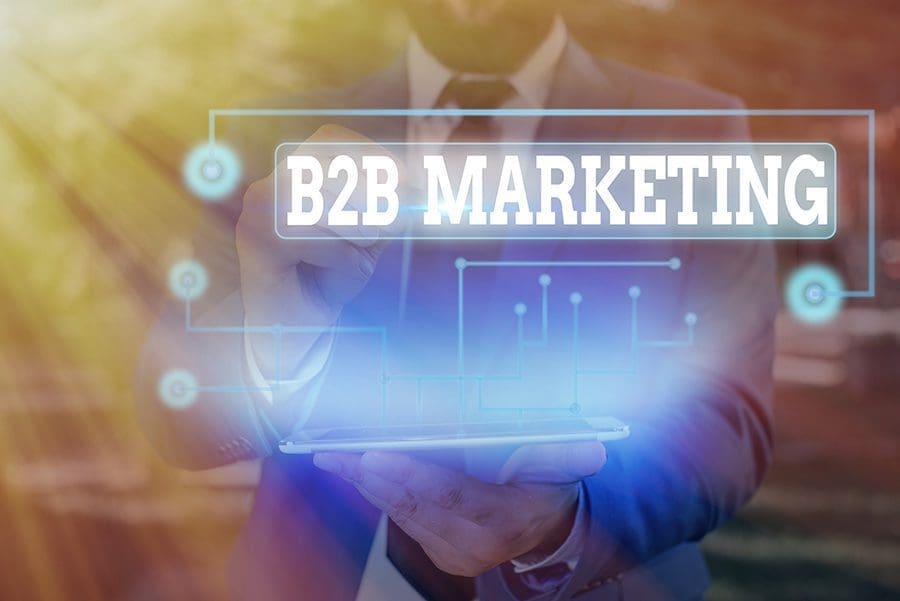As the dawn of a new year in business ushers in, it is an ideal moment to review and possibly refresh your brand and marketing plans. In order to establish long-term partnerships for success within B2B networks, a thorough yet versatile approach should be embraced that can accommodate fluctuating needs today’s commercial sphere brings with it. Keywords such as ‘marketing strategies’ and ‘business relationships’. Need to be taken into account when reevaluating and revitalizing approaches – ensuring you remain competitively ahead of the game!
Key Takeaways
- Revitalizing and integrating brand marketing efforts through ‘Integrative Marketing Fusion’ is crucial for maintaining relevance and aligning teams to enhance communication with the B2B target audience.
- A successful B2B marketing foundation emphasizes understanding the unique characteristics of B2B buyers, building relationships, and leveraging digital channels for personalized engagement and efficient digital journeys.
- Crafting a B2B marketing strategy entails defining a clear target market, establishing measurable goals, developing a unique value proposition, and choosing the right marketing channels for effective campaign delivery.
Revitalizing Your Brand for the New Business Year

As the new business year begins, it’s important to give your brand’s marketing a bit of an upgrade. This goes beyond making sure that everything looks good – by keeping up with trends and modernizing certain aspects, you can make sure that those within your target audience still see relevance in what you have to offer. This could be beneficial for attracting potential customers through social media outreach as well.
Having said all that though, refreshing alone won’t do much if anything without some integrated effort behind it! Using ‘Integrative Marketing Fusion’ is key here. Having everyone on board (marketing team included) will remove silos while personalization strategies based on customer personas/buyer journeys are created from data-driven insights… ultimately resulting in strong positioning when competing within the B2B market space ultimately builds trust between brands and consumers alike!
With all these factors at play when considering brand awareness overall, revamping yourself anew becomes essential in getting any now isn’t it?
Building a Solid Foundation: B2B Marketing Essentials

Having a reliable base is necessary for success in B2B marketing. Yet, what comprises this foundation? It starts by understanding the special characteristics of B2B marketing, which involves communication between other businesses instead of individual customers like with consumer-focused campaigns. Thus, an effective strategy should encompass educational content that focuses on building trust and understanding target audiences’ issues and requirements. Since it has to do more with logical reasoning than emotions as there are several decision makers involved. Usually prices are not accessible online, but rather tailored to each project separately.
Also, partaking significantly into all types of media channels – whether digital or physical – must be given serious thought when figuring out how best to reach your audience effectively via social networks, even though search engine optimization serves great influence in developing credibility throughout brand positioning needs too. Due mostly to digital transformation now we can easily trace entire client journey from initial interactions through using specialized apps intended for such purpose up until purchasing items sold within specialized e commerce shops where hyper personalization comes first taking advantage mainly on automation alongside data assessment & relevant content creation strategies being put together carefully so that users receive distinct experiences according to their particular preferences accordingly.
Crafting Your B2B Marketing Strategy
When it comes to forming a B2B marketing strategy, one should approach the task in a similar way as crafting an artistic masterpiece. It demands accuracy and insight into what makes up the business-to-business market. In other words, its purpose is to have direction for engaging customers in this sector with your products or services while also driving sales through various tactics and techniques.
All elements of such an endeavor need careful consideration. Mainly being identifying which target audience you are looking for, constructing concrete goals that align with those objectives, creating something truly unique that will differentiate yourself from competitors – a value proposition – and always keeping sight of how each part fits into the big picture plan set by the broader strategy itself.
Identifying Your Target Market
When creating a successful marketing plan for the business to business (B2B) sector, defining your target market is an essential first step. To look at demographic and geographic data, it’s also necessary to consider firmographic information in order to identify this audience accurately. To construct a B2B profile that will ultimately shape one’s strategy, many elements need to be taken into account: including customer needs, buyer journey insights, demographics, psychographics, purchaser committee structure, and their motivations when making decisions on which channels are suitable for reaching them effectively.
Understanding these aspects of the potential consumer base allows marketers to dive deep into each individual’s attributes, challenges, and behaviors – all helping craft an effective marketing approach within today’s evolving B2B environment.
Establishing Clear Marketing Goals
To ensure your marketing efforts are productive and successful, it is essential to identify a target market clearly then set realistic goals that align with the company’s objectives. These measurable goals will guide all of your actions so you can avoid wasting resources on strategies without impact.
Common B2B marketing goal examples include raising brand awareness among potential customers, acquiring new leads, making sales conversions more frequently, optimizing SEO ranking and educating prospects about products/services. Don’t forget though: researching buyers’ needs thoroughly as well as avoiding inaccurate buyer personas play an equally important role in achieving these milestones successfully!
Developing a Unique Value Proposition
Having a unique value proposition is essential to your marketing strategy. It highlights the difference between you and your competitors as well as conveying what makes your business stand out to prospective customers. To create an effective value proposition, you should get familiar with what sets apart from other companies in terms of offering solutions that address customer issues and meet their needs. Concentrate on providing options which have tangible benefits for them by alleviating common grievances or difficulties they may be facing.
Implementing Your B2B Marketing Plan

Once the marketing strategy is formed, it’s time to implement it. This includes selecting relevant marketing channels that will effectively reach your target audience and devising catchy campaigns for them. Using advanced technology can help in increasing outcomes of those efforts as well.
For clarification let’s look into all these different parts: choosing the right advertising platforms, building attractive adverts and taking advantage of cutting-edge technological solutions in order to optimize returns from our initiatives concerning marketing strategies.
Choosing the Right Marketing Channels
When it comes to effectively marketing your product or service, the choice of channels is essential. You need to select those that best fit with the characteristics of your target audience and their customer journey. Commonly employed B2B marketing media include content writing, email campaigns, digital outreach strategies such as social networking activities, as well as PPC advertisements. All these approaches are designed for reaching a precise market segment efficiently.
Besides simply deciding which communication mediums will be used, however. Channel management must also take place in order for successful results, from analyzing trends systematically through making decisions about messaging right down until assessing its effects overall on progress towards desired outcomes relating to consumer engagement goals. This helps maintain alignment between current realities amongst prospective customers and marketplace shifts versus intended initiatives connected with connecting them closer to what you offer.
By conducting periodic evaluations related to using various promo methods, potential markets can continuously stay up-to-date and informed while promising they get just what you intend when employing marketing efforts geared at advancing satisfying relationships/engagement with existing individuals within this group along with adding more members overtime.
Creating Engaging Marketing Campaigns
Developing successful B2B marketing campaigns requires a well-crafted plan, SMART goals and objectives that aim to increase brand visibility in the market. Knowing your target audience is essential for creating content tailored specifically towards them as it establishes deeper connections with customers through lead nurturing. A multichannel approach should also be adopted while making data-driven decisions during these processes too.
To tell an effective story though involves much more than providing information alone. Storytelling seeks to invoke emotional responses from audiences by engaging them and demonstrating values or expertise which can help build trust between you and potential clients alike. Visuals are used heavily here as they provide greater impact upon memorability of content compared to other mediums such as text based formats only.
Leveraging Marketing Technology
The digital age has made marketing technology a critical element for business success. By leveraging this type of technology, companies are able to access new channels and develop innovative strategies that optimize the customer funnel and lead generation. An integral component within these technologies is data. It enables personalized campaigns with relevant contact information as well as more efficient decision-making processes. Using such methods ensures higher chances of achieving results in today’s competitive market landscape through an effective marketing strategy powered by tech savvy solutions!
Measuring Success: Marketing Metrics and Reporting
Creating and executing a marketing strategy is essential, but just as important is the need to evaluate its success. This calls for metrics tracking and reporting which offer deep insights on how successful campaigns have been thus far. Data analysis of these results helps tailor objectives accordingly. By using this closed-loop process, marketers can constantly work towards optimizing their tactics with each step taken providing more knowledge than before through analytics feedback, all of which then being used to improve future strategies.
Leadfeeder serves an extra layer by transforming site visits into potential leads or refining methods that bring in viewers so they line up better with one’s ICP (Ideal Customer Profile).
Adapting to Change: The Agile B2B Marketer
In the ever-changing business world, agility is imperative to success. B2B marketers must increase their flexibility and responsiveness with account based marketing strategies that consider data analysis at every step. To maximize efficiency in this environment, an agile mindset is necessary to prioritize validated learning over opinions or conventions as well as customer collaboration instead of silos for faster adaptation when markets shift. Generating new prospects while operating small iterations with self-organizing cross teams will provide successful outcomes within a dynamic business landscape.
Navigating B2B Marketing Trends
For B2B marketers, it’s essential to stay on top of trends. One way to do so is by keeping an eye out for emerging technologies and their influence in marketing practices. Some examples include enhanced personalization/customization, immersing customers into experiences, providing trust & security during transactions with the help of Sales enablement technology as well as video interview tech plus Artificial Intelligence (AI) and Generative AI use cases. Staying up-to-date helps businesses adjust strategies accordingly and stay ahead of market fluctuations.
Consumer behaviors have pushed forth a transformation within the realms of B2B business models that focus more heavily on customer satisfaction while maintaining operational efficiency via digital means such as targeting hybrid working tactics or emphasizing virtual events –– including but not limited too significantly promoting videos + harnessing “dark funnel” approaches, which are all geared towards capitalizing underpriced attention strategically moving forward into 2024.
Harnessing the Power of Social Media in B2B

In the world of modern connectivity, social media has become an invaluable asset to B2B marketing. Using it enables businesses to effectively build their brand awareness, create a distinct online identity, and add personality to their company. This in turn will increase visibility as well provide opportunities for engagement while even generating leads, not forgetting that users can make purchases from your eCommerce store via these platforms too!
When choosing which social media networks are best suited for B2B promotion purposes, several should be taken into consideration – all have proven successful when used correctly with respect to building a presence on line, engaging audiences and creating sales driven results.
All of this power is available if you know how to leverage the potential each platform provides- so get involved today!
Content is King: Mastering B2B Content Marketing

For companies using content marketing in the B2B world, it’s essential to focus on producing valuable information and insights that are tailored for their customers. The key mistake businesses make is not recognizing buyers’ problems before trying to educate them about their own product or services. To maximize your reach as well as foster trust with potential clients, you must ensure your content aligns with each stage of the buyer journey while incorporating educational components that promote awareness around a brand.
Relevant material should address an audience’s pain points so they can see how much value you offer when providing solutions against those difficulties. Companies need quality materials if they want to be seen as industry thought leaders by targeting individuals actively searching for helpful resources – this builds reliability too! Finally, keep creating engaging and informative pieces so readers feel connected enough to engage down the sales pipeline. Gaining more insight into what goes on behind the scenes at a company helps build strong relationships between customers and business alike.
Elevating Customer Experience in the B2B Journey
Customer experience lies at the foundation of B2B journeys. Companies must understand the entire buying cycle from recognizing a need to concluding a sale in order to effectively cater their marketing and sales endeavors. Post-sale assistance is fundamental for creating an ideal customer experience when it comes to business relationships. Offering tailored educational support can enhance satisfaction and dependability levels. Enhancing these experiences involves instructing customers on best practices, ensuring availability of help services, and personalizing every single interaction which should result in happy clients being devoted ones too.
The Role of Corporate Social Responsibility in B2B Marketing
When it comes to B2B marketing, corporate social responsibility plays a key role as consumers become more conscious of the ethical implications associated with their purchases. This involves businesses establishing trust and credibility with potential customers in order to build an effective value proposition for themselves.
Incorporating philanthropy into B2B marketing must come from genuine intentions instead of ulterior motives. Companies that do so are seen favorably by those they’re trying to attract as customers. Johnson & Johnson’s renewable innovation initiatives, Google’s focus on pressing issues such as Ben & Jerry’s commitment towards sustainability and Coca-Cola’s endeavors toward maintaining environmental integrity, all serve as examples of how successful brands have included this practice within their strategies effectively.
The impact CSR can make on business is threefold. It helps raise brand awareness and image among stakeholders while also providing new possibilities through partnerships formed between different organizations or groups – ultimately allowing them to expand reach beyond what would be feasible otherwise. All these aspects form part of the company structure which should lead consistently when creating relationships both internally and externally at its very core if done authentically, continuously striving for advancement throughout time.
Optimizing for Conversion: SEO and Google Ads in B2B
Maximizing your B2B marketing efforts must include a focus on conversion optimization. SEO is the key to enhance visibility when people look for content related to your industry or products/services, such as what TravelPerk does by using topic clusters and sub-topics in their strategy. Paid search is an effective method that can be used – it involves paying search engines like Google so they show ads associated with particular keywords whenever someone searches them, thus increasing chances of potential customers finding you through those terms.
Summary
In today’s ever-changing B2B marketing landscape, success requires multiple components. An effective strategy includes brand revitalization, developing a strong foundation for growth through an innovative and actionable plan that measures results via metrics, adapting to the latest trends while leveraging social media channels with targeted content creation, investing in customer experience excellence as well as meeting corporate social responsibility standards all combined with SEO optimization and Google Ads conversion expertise which ultimately yields sustainable business relationships leading to even more successes.
Frequently Asked Questions
What does B2B mean in marketing?
When it comes to marketing, B2B or business-to-business refers to the usage of certain strategies by one organization in order to target and offer services/products to other companies. This type of tactic is often seen when businesses try selling their products and services to various entities as a form of B2B marketing.
In more depth, B2B marketing involves businesses marketing their products or services to other companies rather than directly to consumers. This form of marketing is typical in sectors where companies require specific products or services for their operations, such as manufacturing, software, or professional services. B2B marketers are tasked with understanding the needs and challenges of other businesses and offering them solutions to help meet their objectives. Tactics used in B2B marketing can vary greatly from those used in consumer marketing. This could involve methods such as search engine optimization (SEO), paid advertising, content marketing, and attending industry-specific trade shows. Ultimately, the goal of B2B marketing is to create valuable relationships between businesses, leading to long-term partnerships that are mutually beneficial.
Which is an example of B2B marketing?
An illustration of B2B marketing is Monday.com’s branding tactics on LinkedIn and Gong’s Super Bowl ads targeted towards businesses instead of individual consumers. Offering services, products or SaaS to other corporations.
To further elaborate, Monday.com, a popular project management tool, uses LinkedIn as its primary platform for B2B marketing. They strategically create and share content that not only promotes their product but also provides value by addressing common challenges in project management and team collaboration. They use compelling visuals, informative videos, and engaging posts to connect with other businesses on the platform, demonstrating how their tool can enhance operational efficiency.
Similarly, Gong, a conversation analytics and salesforce training company, took an innovative approach by leveraging the popularity of the Super Bowl to target businesses. Their commercials were specifically designed to appeal to companies looking for tools to enhance their sales performance. By aligning their marketing efforts with such a high-profile event, they were able to capture the attention of a broad audience and effectively communicate their value proposition to other businesses. Both these examples illustrate the power of targeted, strategic B2B marketing in reaching the right audience and driving business growth.
What is the significance of brand awareness in B2B marketing?
Establishing brand recognition is a key element for any B2B business, as it leads to stronger trust and loyalty among customers. This can also result in increased equity of the company within its industry, making all these aspects imperative for long-term success.
In the competitive world of B2B marketing, brand awareness is not just about recognition; it’s about building and maintaining a reputation that resonates with your target businesses. The more a brand is known and appreciated within its industry, the more likely it is to be considered by potential clients. A strong brand presence in the B2B market can facilitate business interactions, as clients often prefer to collaborate with brands they recognize and respect. Moreover, increased brand awareness can lead to the perception of the company as an industry leader, positively influencing the decision-making process of potential business partners or customers. In essence, investing in brand awareness is investing in the company’s future growth and success.
How can data enhance B2B marketing strategies?
Analyzing data allows for optimized campaigns, resulting in an effective and continually evolving B2B marketing approach. The insights from this evaluation create the opportunity to refine strategies based on what works best.
Data, more specifically, data analytics, is a game-changer for B2B marketing strategies. By examining data, marketers can gain a deeper understanding of their target companies’ behaviors and needs, thus tailoring their approach in a way that resonates the most. Data analytics can reveal patterns and trends within the market, providing marketers with valuable insights into what strategies are most effective. For instance, if data shows a high engagement rate on a specific type of content, marketers can focus their efforts on producing more of that content. Conversely, if a certain strategy shows little to no return, it can be adjusted or discarded accordingly. Furthermore, data can also help businesses forecast future trends, allowing them to stay ahead of the competition and proactively meet their customers’ evolving needs. In essence, data analytics in B2B marketing provides the means to not only understand the present market landscape but also predict its future.
What is an agile mindset in B2B marketing?
Validated learning, customer collaboration and quick adaptation to changing conditions are all essential elements of an agile mindset in B2B marketing. By adopting this approach, companies can increase their chances for success.
An agile mindset in B2B marketing is all about being flexible, adaptable, and customer-centric. It’s about embracing change and viewing it as an opportunity for growth rather than an obstacle. This mindset requires marketers to be in a constant state of learning, continuously testing new ideas, analyzing results, and adjusting strategies based on their findings. It’s an iterative process that prioritizes customer feedback and values quick response to changes in the marketplace.
With an agile mindset, marketers are encouraged to work closely with customers to better understand their needs and preferences. Collaboration and open communication are key in this approach, making it possible for marketers to create more tailored, efficient strategies that not only meet but exceed customer expectations.
Moreover, adopting an agile mindset necessitates a willingness to take calculated risks. Trying out new tactics and strategies, even when success isn’t guaranteed, is vital for innovation and progress. The idea is to learn from both successes and failures, using every experience as a stepping stone to improve and evolve.
Lastly, an agile mindset in B2B marketing is about fostering a culture of continuous improvement. It recognizes that there’s always room for improvement and sees every challenge as a chance to learn and grow. By adopting this mindset, businesses can stay ahead of their competition, offer more value to their clients, and ultimately, achieve long-term success.
Tell me more about the Interactive Marketing Fusion model?
The Interactive Marketing Fusion model is a customer-centric approach to B2B marketing that combines the latest digital technologies with traditional marketing tactics. It focuses on creating a seamless, interactive experience for customers across all touchpoints, ultimately leading to stronger engagement and conversion rates.
At its core, the Interactive Marketing Fusion model recognizes that customers are at the center of every successful marketing strategy. By using digital technologies, such as social media, email marketing, and website personalization, businesses can engage with their customers in a more personalized, empathetic, and interactive way. This approach also involves integrating these techniques with traditional marketing methods like print advertising or event sponsorships to create a holistic marketing approach.
The goal of the Interactive Marketing Fusion model is to create an immersive experience for customers that builds relationships, fosters trust, and ultimately leads to conversions. By leveraging data and technology, businesses can tailor their messaging and content to the specific needs and preferences of their target audience. This model also allows for real-time interactions with customers, enabling businesses to respond quickly and effectively to their inquiries or concerns.
In summary, the Interactive Marketing Fusion model is all about creating a dynamic and engaging customer journey that builds brand awareness, trust, and loyalty. By combining the best of both digital and traditional marketing strategies, businesses can create a strong, lasting connection with their customers and drive business growth. So, it is an effective approach for companies looking to enhance their B2B marketing efforts in today’s fast-paced digital landscape.
Summary, Part Deux
Overall, B2B marketing is constantly evolving, and data, an agile mindset, and the Interactive Marketing Fusion model are all essential components for success in this ever-changing landscape. By using these strategies, businesses can stay ahead of the curve, build strong customer relationships, and drive growth in their B2B marketing efforts. Investing in these tactics is investing in the company’s future success. So, it is important for businesses to continuously adapt and improve their B2B marketing strategies to stay relevant and competitive in the market. With a customer-centric approach, a willingness to learn and evolve, and utilizing the latest technologies, businesses can thrive in the dynamic world of B2B marketing. So let’s embrace data, an agile mindset, and the Interactive Marketing Fusion model to take our B2B marketing efforts to the next level and achieve long-term success. Stay agile, stay customer-focused, and the rest will fall into place! So let’s continue to learn, adapt, and grow together in this exciting field of B2B marketing. Happy marketing!
Subscribe today not to miss a thing.
My blog posts of the week emailed to you in a nice little (email) package.


